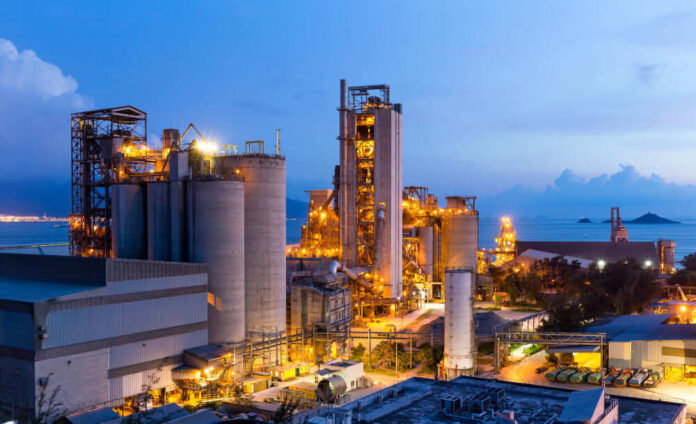There is a great deal of room for growth in the quickly developing field of industrial environmental solutions, especially when it comes to industrial dust collector systems. Innovative dust control technologies are in high demand as the industry pursues efficiency and sustainability.
In this article, we’ll explore the essentials of launching a business in this field. From understanding the technical aspects of dust collection systems to navigating market demands and environmental regulations, we aim to provide a clear and concise guide. So, keep reading!
Understanding the Market for Industrial Environmental Solutions
The global demand for environmentally friendly industrial solutions has created a sizable market for industrial environmental solutions.
Companies are continually looking to increase the effectiveness of their dust collectors in order to comply with strict environmental regulations. This trend gives business owners access to a world of possibilities for expansion and creativity.
Entrepreneurs who want to launch a green firm in dust collecting must first comprehend the unique demands of the industry. This entails determining which sectors, such as manufacturing, construction, carpentry, and pharmaceuticals, need dust collection equipment.
Depending on the kind of dust produced and the size of the operations, each of these industries has different criteria. Furthermore, there’s a rising need for systems that support an organization’s sustainability objectives in addition to adhering to environmental requirements.
For example, businesses are searching more and more for systems that can manage recyclable or non-toxic waste, are less carbon intensive, and use less energy.
Steps to Starting a Business in Dust Collection
There are a few essential procedures to take when starting a dust collection business. Planning a business and being aware of startup tactics are essential.
To provide state-of-the-art solutions, a thorough examination of dust collection methods is also a must. Let’s see some important steps you need to pay attention to when starting a business in dust collection.
#1: Prioritize Eco-Friendly Solutions in Industry
Environmental compliance and sustainable company practices are not simply trendy terms in today’s market they are necessary for both survival and prosperity.
By incorporating green technologies for dust collection, a company can improve its market attractiveness and consumer trust while also protecting the environment.
#2: Leverage Sustainable Technologies
This means putting money into making systems that save energy and have better filters that last longer. It also includes using automatic controls to save power and designing the best airflow. Another important point is to use or make ways to handle waste that are good for the environment.
This can be done with safe ways to get rid of dust or recycle it. Business owners should also think about using eco-friendly materials in their dust collectors to lessen their harm to the environment.
#3: Understand possible Challenges and Find Solutions
There are challenges for those who are new to this sector. In a market where competition is fierce, the need for a customized, high-efficiency industrial dust collector demands creative solutions.
The key to finding those is having a thorough grasp of the demands of the client and providing customized, effective systems that are notable for their durability and performance.
#4: Navigating Environmental Regulations
Maintaining a dust collection systems company requires a lot of attention to detail and adherence to environmental laws. These laws, which may include requirements for emissions, waste management, and operating safety, might differ greatly from one area to the next.
Knowing these rules is essential for both ensuring compliance and using them as a selling point when promoting to customers who care about the environment. Keeping up with prospective legal changes can also give firms a competitive edge by enabling them to foresee changes in the market and swiftly adjust.
#5: Develop Effective Marketing Strategies for the Business
A marketing plan that emphasizes the products’ or services’ positive environmental effects is absolutely necessary. This could entail highlighting the systems’ energy efficiency, their role in making the workplace cleaner, and how they assist clients in achieving their own sustainability objectives.
Particularly convincing are case studies or client testimonials regarding quantifiable environmental improvements. Reaching a larger audience can be accomplished through digital marketing that emphasizes social media and content marketing.
Building brand recognition can also be aided by networking at sustainability-focused trade events and within industry associations.
#6: Build Partnerships and Collaborations
Establishing alliances and working together might be a calculated strategic move for companies. This could entail collaborating with sustainability-focused organizations, joining green business networks, or hiring environmental experts.
These partnerships have the potential to create new avenues for business growth in addition to offering insightful information and resources. Partnerships with academic institutions or IT firms may also result in breakthroughs that maintain the company’s leadership in environmentally friendly operations.
Final Note
Starting a profitable business in the world of industrial dust collectors is a difficult process, but there are plenty of prospects for those who approach it creatively, sustainably, and strategically with their marketing.
For entrepreneurs who are prepared to accept these components and pave the path for a profitable and long-lasting company endeavor, this industry has a bright future.
















